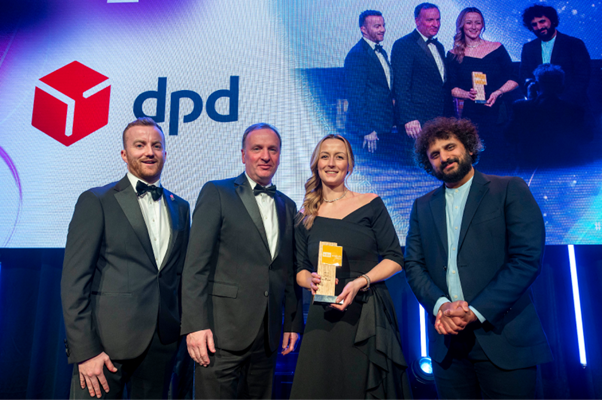Apple falls from the trillion dollar tree
Where has all the money gone? First Amazon, and now Apple drop out of the trillion dollar club.
Shares in Apple, Amazon and the rest of the FANGs have been falling sharply. The markets seem to be saying ‘we think techs are over priced’. Don’t believe it, the tech revolution hasn’t even got started yet.
Neither Apple nor Amazon are worth over a trillion dollars any longer.
At time of writing, Amazon is worth $814 billion, you may recall it was worth over a trillion six weeks or so ago, so that was quite the fall.
“Amazon joins Apple in passing the trillion dollar mark as the information age gathers steam”
Facebook shares are down by a quarter since their peak price in July, and Alphabet is off by about a fifth.
But now even Apple has lost its trillion dollar crown, at least it did for a few minutes today. At the time of writing its valuation is $1.01 trillion.
Is this carpets for the tech boom?
Well, Apple profits surged 31% in the latest quarter, for example. None of the techs posted disappointing results; it is just that the markets had priced in near miraculous results. Instead techs only enjoyed really good results. And really good doesn’t cut the mustard.
But if you think the tech boom is over for good, here are two words to consider: artificial, and intelligence. The thing about AI is that the revolution is only just beginning. McKinsey estimates that AI will boost global GDP by 1.2 percentage points a year between now and 2030. But AI has been in waiting. It has been waiting for sufficient computer power, it has been waiting for the data machines need to learn, and it has been waiting for the apps that can utilise the power of AI. In this game, ten years ago was forever, three years ago was like the Middle Ages, and last year was kind of like the Renaissance. The revolution begins in earnest around about now. By 2020, it will be changing the world, by 2025, it will have changed the world, and by 2030, we will look back at AI circa 2025, and laugh about how primitive it was.
And as AI catapults the world’s largest companies to $10 trillion plus market cap, we will think back smugly and say ‘Do you remember when we thought the iPhone had changed the world? How naive we were.’
Whether the existing FANGs, or if you include Apple, the FAANGs, dominate tech then remains to be seen, but tech will certainly be dominant.
“How do you solve a problem like Facebook?”
FIFA Tackled From Behind by Cyber Hackers
The worldwide football governing body FIFA revealed this week that information was phished from their IT systems back in March.
“FA warns over cyber security ahead of the football World Cup in Russia”
Officials from Europe’s football governing body UEFA have also declared an attack on their cyber infrastructure, stating that they were fooled into giving away their passwords.
This comes mere weeks after the United States’ Department of Justice and the FBI confirmed that Russian military intelligence were to blame for an attack on FIFA back in 2016, which revealed confidential information regarding anti-doping investigations.
The governing body are yet to reveal any further details on the latest attack, but have been communicating with various media outlets in private.
The attack in 2016 and the one this past week are not thought to be linked.
A consortium of European media outlets are reportedly planning to publish further details on the latest hack soon, the New York Times reporting as early as today, the 2nd November.
According to Tony Pepper, CEO of Egress Software, the phishing attack emphasises the importance of implementing ‘user-centric’ cyber security methods, and using cyber security software that is compatible with the technology involved in all company practices.
“With data breaches becoming much more prevalent, and organisations clearly still struggling to mitigate the risks caused not only by hackers but also by unpredictable user behaviour, it is essential that they take advantage of existing technologies, such as Machine Learning (ML), that can help to mitigate the risks users and organisations face.”
“A deep look into artificial intelligence, machine learning and data science”
Pepper continued: “By analysing people’s email behaviour, smart technologies can now recognise patterns and highlight anomalies.
“For example, in cases where a phishing email requires an individual to respond, they can be alerted to the fact they haven’t emailed this recipient before or that the recipient is not trusted – immediately raising red flags for the user in scenarios where cyber criminals are leveraging established relationships.”
Regulators have not yet confirmed whether they will be issuing FIFA with a yellow or red card.
Google Employees Protest Against Handling of Sexual Misconduct
Yesterday, Google employees staged protests across the world in response to an article alleging that the company provided substantial exit packages to executives accused of sexual misconduct.
A notable example that has come to light was the $90 million allegedly awarded to android creator Andy Rubin despite the company confirming that sexual harassment allegations against him were legitimate.
Named “Walkout for Real Change”, the marches took place in New York City, London, Berlin, Hyderabad and other cities across the world, and featured placards with messages such as “O.K. Google. Really?”
“GOOGLE IS 20! But how do people who are younger, feel about life in the Google age?”
The tech giant responded to the initial article by claiming that they had fired 48 employees who had been accused of sexual harassment without any exit packages being given out.
Co-founder and CEO of Work180 Gemma Lloyd commented: “The list of formal demands from the Google employees is fair and is exactly the type of transparency organisations should be working towards, from exposing the pay gap figures year on year in the UK to the introduction of Equal Pay Ambassadors in Australia.
“We see much more action than just words when the diversity and inclusion role reports directly into the CEO, and is not just a side show by HR personnel.
“The Google walkout has forced the firm’s chief executive to comment on the issue, so hopefully change will happen. More companies need to take the treatment of women in the workplace seriously given that employees will no longer stay silent on unfair conditions.“
IBM sees red, but is it as mad as a hatter?
IBM has made the biggest software acquisition in history through buying open source platform company Red Hat for $34 billion.
Some see it as a sign of desperation. Was Big Blue forced to make the move in fear over the continued dominance from AWS, Microsoft Azure, Alibaba and Google Cloud?
So, will the purchase really give IBM, suffering as it does from years of inconsistent earnings, the lift it needs? Does the, hat, as it were, fit?
“IBM acquires Red Hat in $34BN deal: A game changer?”
IBM data estimates some 80% of business workloads ‘have yet to move to the cloud, held back by the proprietary nature of today’s cloud market.’
Alison Dodd, Managing Director of T-Systems Limited, a tech firm which helps businesses like Audi, Daimler get the best out of cloud technologies said: “IBM’s acquisition of Red Hat, the largest for a software company, demonstrates IBM’s intention to catch up with cloud-native organisations like Microsoft Azure and AWS. Only time will tell if this IBM gamble will pay off and if they can tap in and compete for mindshare and revenue share in the public cloud services category.
“We may not see the benefits of this deal until this time next year as IBM and Red Hat will need time to streamline operations and optimise go to market processes.
Breaking down the IBM/Red Hat deal in the context of the software M&A space
“As the competition in the public cloud market hots up, it creates a win-win scenario for end user organisations. From our experience helping businesses such as Audi, Daimler and Lyon Airport move into the cloud, we know two-thirds of any current IT infrastructure can be ‘cloudified’, meaning transferring applications into the cloud.
“As IBM highlighted, there is a big opportunity left out there for cloud services providers to secure new revenue, however it will only be seized by provider are fast and agile enough to react to market changes.”
Written in collaboration with Michael Baxter @michaelbaxter_.










